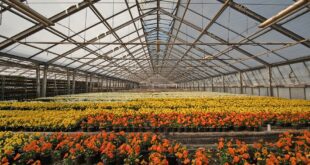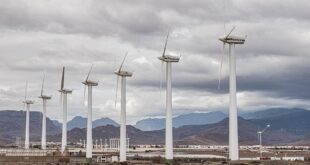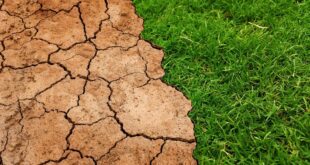Rethinking Agriculture for a Changing Climate: Best 20 Practices
Introduction
Agriculture is deeply connected to climate, and there is no doubt that our changing climate is affecting the way we farm. But farmers are adapting to these changes by rethinking farming practices. By implementing modern techniques and innovative strategies to improve soil health, conserve water, and reduce greenhouse gas emissions, they are working to build a more sustainable and resilient food system. Here are the best 20 practices in rethinking agriculture for a changing climate.
Planting Perennials
Perennial crops are deep-rooted, which helps them to sequester carbon in the soil. They also require less water, and help to prevent soil erosion. They include fruit and nut trees, as well as berry bushes, and many others.
Cover Cropping
Cover cropping involves planting crops such as legumes or grasses during fallow periods. This helps to keep soil in place and reduce erosion, improve soil health and fertility, and retain moisture.
No-till Farming
Tilling the soil releases carbon into the atmosphere, increases erosion and compaction, and reduces soil health. No-till farming greatly benefits biodiversity, plant life, carbon dioxide storage in the soil, and overall healthier soil.
Intercropping
Intercropping is the practice of growing different crops in the same field at the same time which has numerous benefits such as reducing the land kept out of production due to crop rotation, allowing farmers to farm more efficient, and more.
Cropping Livestock Integration
Integrating crop and livestock production helps farmers save money, and decreases nutrient loss while protecting the soil.
Agroecology
Agroecology means farmers engage in ecological practices to regain farmland fertility while promoting environmental sustainability, economic viability, and social welfare.
Plant Breeding
Another very important technique is plant breeding in which organic and natural control strategies help plants adapt to changing trends in weather and pests that previously wiped them out. This make the plants more durable and dependable in the coming years.
Resource-Efficient Farming
Smart water applications, using internal regenerative systems, and similar other practices promote the successful growth of crops according to environmental availability.
Energy Efficiency
Farmers can create more energy-efficient practices in their greenhouse, intake water allocation systems, tools, machinery, etc. This has direct and long-term accumulation from both financial and practical perspectives.
Non-Chemical Pest Controls
Pest control relies on insect-resistant plants that were promulgated using traditional methods also biocontrols including use of predators, parasitoids, and other natural enemies of insect.
Saving Seeds
Seed libraries should be available that can securely archive the seed diversity and in some places, it is commonly suggested that farmers investigate these resources that secure genetic advantage and preservation.
Polyculture Systems
Many nuanced and nourishing approaches can be seen when there is an combination of habitat creation, rotational practices and integrated specie management.
Microbial Protein Supplements
Farmers can manufacture their own protein supplements through facilities that go beyond milk production by adapting technologies that we use to make dairy and similar livestock.
Visionary Farming
Training, inspiring and raising environmentally-sensitive farmers who embrace conservation biological treatments combining ecologically functional parts into an innovative system.
Crop Rotation
A great way to control insects that are harmful to crops is to regularly replace crops. This helps the soil build its bedrock nutrient banks decrease the amounts of diseases and pests.
Ozone-Friendly Refrigerants
Keeping steady flow of cold air in specific locations with ozone-friendly devises saves money while preserving the environment.
Organic Agtech Companies
Using available technologies enables economies and improves environmental sustainability on which startups are constantly and proactively thriving to achieve a broader outlook-based goal.
Reduce Water Consumption
Methodologies based on decision-support systems value quality rather than quantity of water usage, help lessen water levity and eventually enhance the crops’ efficiency.
Transcriptomic Plant Analysis
Analyzing the genetic information of plants, like transcriptomic plant analysis helps farmers create hybrid crops and improve crop resistance in particular with climate change.
Conclusion
Agriculture plays a vital role in providing food and livelihood for millions of people. Yet, farming practices can greatly affect our climate. Rethinking agriculture is imperative for sustaining natural ecological and making living conditions on our planet. By adapting technologies to reduce emissions, pushing for more sustainable practices and reducing usage of pesticides and water; we can safeguard our health and the global food system for generations to come.
 Mind Uncharted Explore. Discover. Learn.
Mind Uncharted Explore. Discover. Learn.



